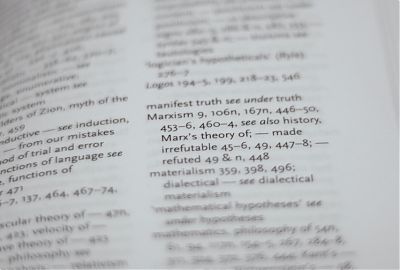German Politics · 3 October 2015 ·
Twenty-five years of a reunited Germany
On the 3rd of October, twenty five years ago, Germany was no longer a divided country. I was not quite three years old, but the fall of the wall and the reunification meant that my life would take a very different turn and I sometimes wonder what my life would have been like if it didn’t happen. Time for a brief reflection and some historical documents.
...continue reading and comment
Psychology Politics · 2 April 2013 ·
Gender biases on the job market in academia: There are already quotas, but they are implicit
The issue of supporting quotas for supporting women in board room positions and academia are highly contested: Is it really fair that women receive extra support through guaranteed quotas during the application process? Does this not bias the employment process, whereas less qualified personnel was employed? In a blog post over at the LSE’s Engenderings, Linnea Sandström has made a case in favour of quotas, and I want to present some research here that suggests that there is already an implicit selection process favouring one sex over the other—only that it works in favour of men, and that this imbalance is not just attributable to life style choices. Rather, there is a bias direct against female applicants, even when the information about the applicant is the same. Therefore, quotas are about balancing an already existing bias, rather than introducing a new one.
...continue reading and comment
Politics Philosophy · 5 February 2013 ·
Pettit on the relationship between the market and the state
On the Politics in Spires blog, Philip Pettit has published an excellent piece on a republican[1] perspective on democracy, freedom and the markets. In his article, there’s one point that’s particularly notable in my opinion: He argues that the markets should not be taken as an independent entity, but are a socio-political construct, determined not only by the actions of individual market participants, but by the social structure.
“[W]e can avoid being seduced into the libertarian view — now, alas, almost an orthodoxy — that the market is a relatively autonomous sphere which depends only contingently on the framework of custom and law, and on the role of the state in supporting that framework. The role of the state in relation to the market — the role of the community, operating through the state — is constitutive and not just regulative, enabling and not just constraining. And it is extensive in even a greater measure than my five sets of rules suggest, since it also includes providing for the infrastructure of education, communication, transport and insurance that any contemporary economy requires.”
I think that this is an essential point to make: Any riches, and any losses in property are the consequence of a particular status quo and the current social order, as determined by the rules and regulations in a society. Let me elaborate:
...continue reading and comment
Politics Philosophy · 2 November 2011 ·
Popper: Irrefutable Marxism has been refuted?

It’s been an in-joke amongst Popper’s critics like Paul Feyerabend and Imre Lakatos that in the subject index of Popper’s Open Society and it’s Enemies lists Marxism as “—irrefutable” and “—refuted” at the same time (Lakatos & Feyerabend, 2010).
...continue reading and comment
Psychology Politics · 8 March 2011 ·
How can this be...?
A man and his son were away for a trip. They were driving along the highway when they had a terrible accident. The man was killed outright but the son was alive, although badly injured. The son was rushed to the hospital and was to have an emergency operation. On entering the operating theatre, the surgeon looked at the boy, and said, “I can’t do this operation. This boy is my son.” How can this be?
(Source: Sanford, A. J. (1985). Cognition and cognitive psychology. London:Weidenfeld and Nicolson.)
...continue reading and comment
Politics · 10 February 2011 ·
Democracy
The great danger in any democratic republic is the danger that people think democracy is an automaton—that is to say, an engine that goes of itself without any effort and that like the battery in the advertisement, it just keeps going and going and going. But, in fact, democracy doesn’t keep going and going and going. It requires the fuel of active citizenship. — Benjamin Barber